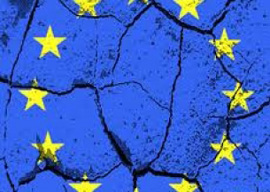
May 08, 2012

How Europe’s crisis resolves itself as yet remains unknown.
But with Sunday’s returns from France and Greece, the mega-trends on the Old Continent are unmistakable. And for the European Union, they are ominous.
Nationalism—be it economic nationalism or ethnic nationalism—is ascendant. Transnationalism and multiculturalism are in headlong if not irreversible retreat. The European project is itself imperiled.
To be sure, no one should underestimate the commitment of Europe’s elites to the vision of One Europe as challenger to the United States. In the capitals and corporate headquarters of the continent, these elites are, almost to a man and woman, devout Europeans.
Yet their ability to keep Europe on course until its peoples have yielded up their sovereignty and agreed to submerge themselves in a single entity is now in question. From Paris to Athens, the radical left and the nationalist right are resurgent. Marxists and patriots dream different dreams than the disciples of Jean Monnet.
Consider what the French electorate just said.
In the first round of voting, communists and radicals took 11 percent. Their leader, Jean-Luc Melenchon, endorsed the socialist Francois Hollande, who went on to win Sunday.
President Nicolas Sarkozy, who ran second in the first round with only 27 percent, raised his total Sunday to 48 percent. Though Marine Le Pen of the National Front had refused to endorse him, Sarkozy openly courted her voters.
As Marine put it, they call us racists, protectionists and xenophobes. Then they come asking for our endorsement, echo our words and seek our votes.
The near 30 percent the National Front and far left combined pulled in the first round is unprecedented in the annals of the Fifth Republic.
In Greece, the returns were equally dramatic.
PASOK, the governing center-left party, ran third with 13 percent of the vote. New Democracy, the center-right party that is in coalition with PASOK, ran first but won only 19 percent.
These two parties saw their combined support sliced in half since the last election and may be unable to form a government that can continue to impose the austerity the German-led eurozone is demanding as the price of Greece’s bailout.
The parties that gained most were the communists with 7 percent, Syriza, a radical-left party, with 17 percent, and Golden Dawn, a far-right party that has called for land mines on the border, with 7 percent. All three will bedevil any coalition that accedes to German demands.